The Beginners Guide: John Carpenter, Director
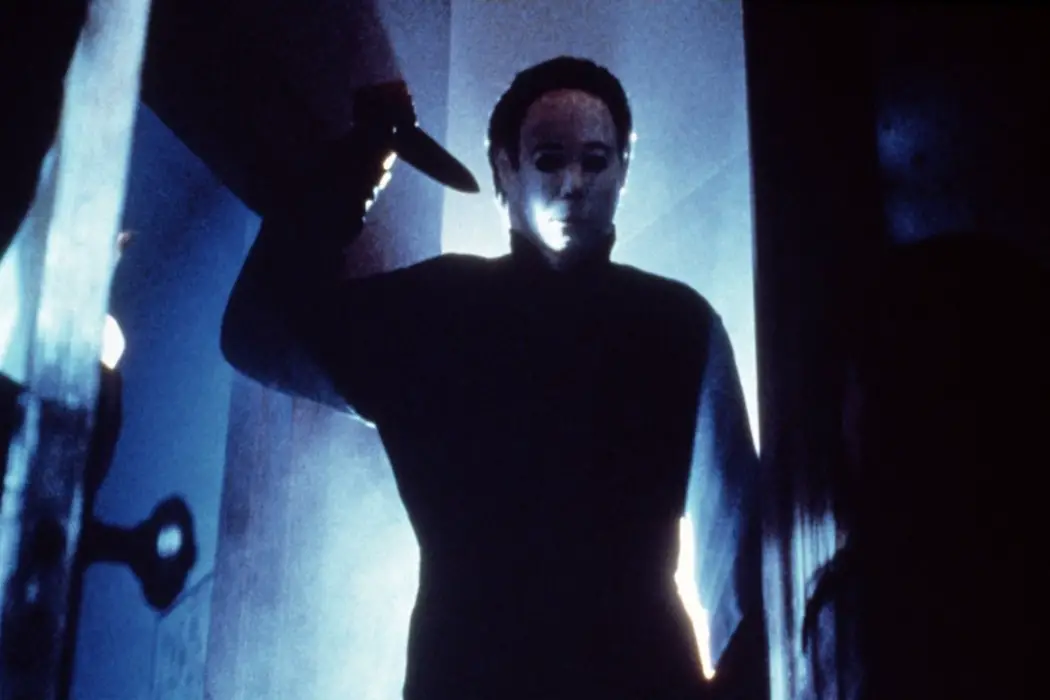
Zac Hestand earned a BA in Film from the University…
John Carpenter was born in Carthage, New York January 16, 1948, but spent his childhood in Bowling Green, Kentucky where his father taught music at Western Kentucky University. Living in a small town in the South, Carpenter spent his youth learning music from his father (using those skills to become famous for his film scores), and frequenting his local movie house. Those trips to the movies is where he fell for genre films such as Westerns, Sci-Fi and Horror, and at the age of 14 began making his own short films.
With making these amateur shorts, John Carpenter would cover all aspects of production (writing, editing, directing and most importantly, music. He would go on to score almost every film he directed). This hobby led to enrollment in the USC film program where he honed his technique to become one of the most distinctive voices of American cinema. A voice that has its origins in two areas of cinema history: the Western and Howard Hawks.
Like his idol, Carpenter worked in a variety of genres, even though he would be primarily known as a Horror director. Hawks’ films Rio Bravo and The Thing from Another World (the latter which got remade by Carpenter) recur frequently in his work: groups banding together to fight off a threat. The groups do so in Carpenter’s signature trademark: characters in a restricted space fighting off a deadly outside force and become unlikely heroes.
His characters in the restricted space derives from John Carpenter’s love of Westerns. In many Westerns, the stories are restricted to a town or a small land area, and the deadly force that comes to the area range from bandits to evil land barons. Alternatively, the town itself is bad, and the hero (an unlikely or anti-hero) comes to the town to resolve the conflict. With these concepts, Carpenter is a director of Westerns that has never made a Western.
Assault on Precinct 13 (1976)
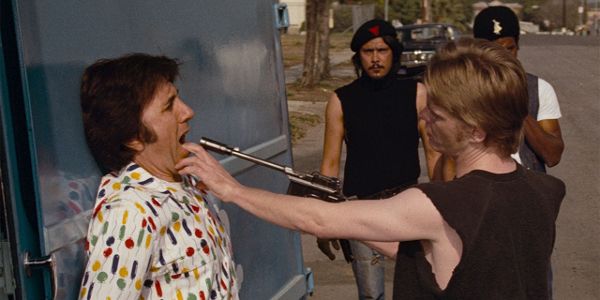
A police sergeant, staff members and inmates awaiting transfer are trapped inside a police precinct. Different gangs band together to ambush a police station as an act of revenge. Inside, the precinct is on the verge of closing, leaving limited resources and people for defense.
The sergeant and others are in a restricted space (the police station) fighting off a deadly force (gang members determined to kill them all). While the police are traditional heroes, what aids the signature unlikely hero element found in John Carpenter are the inmates. The prisoners in the jail cells agree to help the staff fight off the invading gang members, thus becoming unlikely heroes of the film.
Assault on Precinct 13 is influenced by Howard Hawks’ Rio Bravo, where the sheriff (John Wayne) rounds up an unlikely unit (a drunk, a young gunslinger and a disabled person) to hold down a jail. John Carpenter would reuse this concept in Ghosts of Mars, which has been called “Assault on Precinct 13 in space” by some.
Halloween (1978)
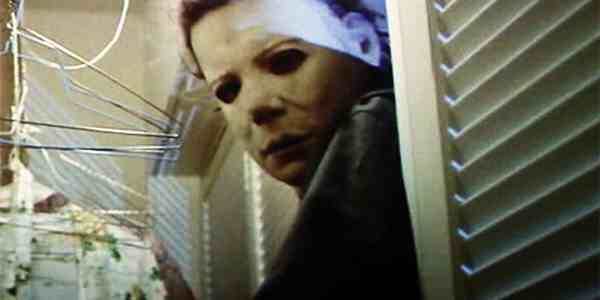
Though not the first Slasher movie, Halloween became one of John Carpenter’s best known works. Made on a budget of $300,000, the film made 70 million dollars at the US box office, and spawned the Slasher movie craze that dominated 1980’s Horror. The film also made numerous sequels and imitators, the most famous imitator being Friday the 13th.
Sam Loomis (Donald Pleasance) comes to Haddonfield to find escaped mental patient, Michael Myers; who murdered his older sister years before. Myers comes to the neighborhood of Laurie (Jamie Lee Curtis, in her film debut) and commences a reign of terror on her and her friends.
Haddonfield, like the town in a Western, is a restricted land area that gets invaded by the evil force (Michael Myers). The police, unfortunately, are no help, but we see in Loomis, Myers psychiatrist and Laurie, a high school age student, are unlikely heroes who save the day. Also, in another nod to Hawks, Laurie is a strong, interesting female character, that recur in Hawks films like Bringing Up Baby. The woman is the hero, not the archetypal damsel-in-distress.
The Thing (1982)
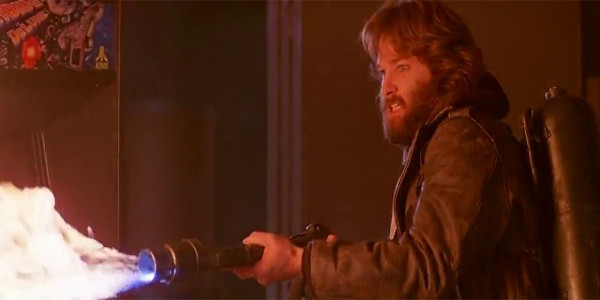
John Carpenter‘s remake of the classic film of his youth gets an update both in mood and execution. While Carpenter scores his films, The Thing is one of the few he did not. Instead, he recruited the legendary composer, Ennio Morricone, best known as the main composer to the films of Sergio Leone, a man known for his Westerns.
The Sci-Fi Horror tale concerns a group of researchers in Antarctica that discover an alien being. The creature, or thing, can morph into anything it pleases, without the crew knowing what is real and what is fake. Eventually, the crew cannot trust anyone, so this is when, as they say in the movies, “all hell breaks loose”. Violence and mayhem arise in their tight, secluded compound.
As the crew develops methods to fight this thing, they band together to stop it. These men, as mentioned above, are researchers, not soldiers, but they get guns and blowtorches to fight this “deadly, alien force,” that has invaded their restricted space.
Big Trouble in Little China (1986)
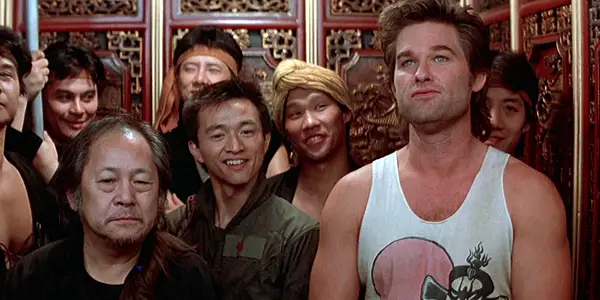
This is my favorite John Carpenter joint for many reasons. For one, it was the first one I saw as a child, so there’s the nostalgia angle. Second, it’s a nostalgia film that holds up well to be enjoyed by an adult viewer. Lastly, the film is action-packed and hilarious!
Trucker Jack Burton (Kurt Russell, a Carpenter regular) reluctantly agrees to help his friend rescue his kidnapped fiancee. What is originally thought to be local Chinatown hoodlums, turns out instead to be an ancient sorcerer who needs the girl to break a curse (he needs a Chinese girl with green eyes, and she fits the bill) to become fully human again. With the help of a local tour guide (Victor Wong), Burton and crew set out for a rescue mission.
Carpenter’s Burton character keeps in line with the unlikely hero. Burton only cares about his truck and money, but after some arm twisting, agrees to help out. Each character brings their own charm to the table to add to the comedic elements to the film. As for the restricted space: San Francisco Chinatown. The evil is within the city, and Burton is our Caucasian outsider that enters the secretive, Eastern zone to fight wrongdoers.
They Live (1988)
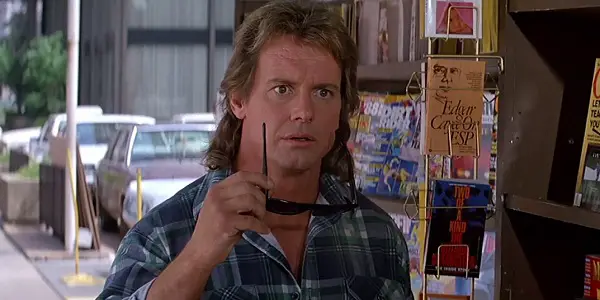
For They Live, John Carpenter cast Wrestler Roddy Piper as our unconventional hero. Why cast a non-actor for the lead? Well, one of the movie’s most famous scenes is a fight between Piper and actor Keith David; that goes a bit longer than necessary. Go online to watch it, it’s awesome. I guess a wrestler is better at handling ridiculous fights than an actor.
In lieu of a small town, the film is set in Los Angeles. Piper plays a drifter (much like Clint Eastwood in those Sergio Leone movies) a little out of place with the glitz and glamour of the city. He finds a pair of sunglasses, and when he puts them on, things are not what they appear to be. The people are aliens, slowing planning to take over the world.
Piper takes it upon himself to stop these aliens, even if no one believes him. He becomes a one-man army in saving the world, or as his character says: “I have come here to chew bubblegum and kick ass….and I’m all out of bubblegum.”
John Carpenter’s Vampires (1998)
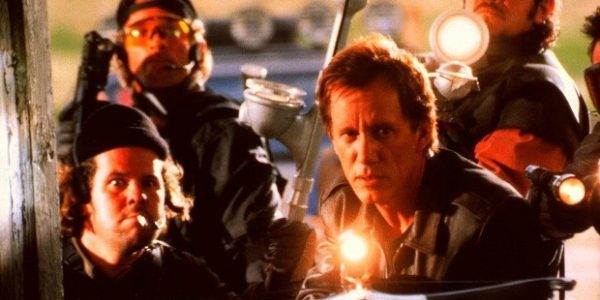
An underrated John Carpenter gem about a team of vampire slayers in New Mexico led by James Woods. This gets overlooked often, unfortunately. At the time of its release, the film had to compete with both Blade and Buffy the Vampire Slayer. Fortunately, the vampires are gruesome, not of the Twilight variety. Also, Woods chewing through the scenery is entertaining.
Woods and his crew travel through New Mexico, and the southwest, slaying any vampire nest they can find. To their dismay, an ancient vampire lord is awoken from a deep slumber, and plans to raise a vampire army. The action is graphic and over-the-top, as a vampire movie should be.
This perhaps looks closest to a Western: the desert landscapes, desolate towns and local yokels fill the screen. Woods even has the swagger of a gunslinger, sans the cowboy hat. Though the film is about vampires, Carpenter may have finally made his version of the Wild West.
Masters of Horror: Pro-Life (2006)
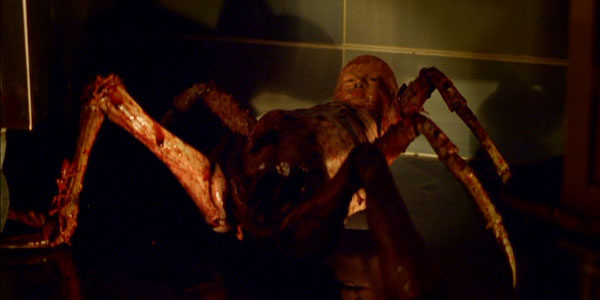
After the box office failure of Ghosts of Mars, Carpenter went into semi-retirement. He came out of retirement only to direct two episodes of the anthology series, Masters of Horror and the little-seen 2010 film, The Ward. With the episode, Pro-Life, he goes back to the Assault on Precinct 13 structure.
A teenage girl comes to an abortion clinic, but the story of how she got pregnant is vague. It is revealed that her father (Ron Perlman) is a Christian extremist with a reputation for trouble with these clinics. Her father shows up, along with her brothers, with a truck full of guns for a mass shooting.
Like his previous film, the doctors, staff and patients are in a restricted space (clinic) and must protect this girl from her dangerous father (the workers become unlikely heroes) and SPOILER: the father believes God speaks to him, and his daughter is carrying Christ, only it wasn’t God that spoke to him.
Back to Music
Unfortunately, Carpenter has not directed a film or television program since 2010. However, he is focusing on his music, by releasing the albums Lost Themes and Lost Themes II, that feature his iconic synth sound. Carpenter even goes on tour with his musician son, Cody Carpenter.
While it looks like there are no new films to look forward to, Carpenter has left his mark on the cinematic landscape, and introduced his love of Westerns to many non-Western genres. Where he continues to inspire legions of young filmmakers with his films.
Is there a film I left off? Do you agree or disagree that Carpenter uses restricted spaces and unlikely heroes in his films?
Does content like this matter to you?
Become a Member and support film journalism. Unlock access to all of Film Inquiry`s great articles. Join a community of like-minded readers who are passionate about cinema - get access to our private members Network, give back to independent filmmakers, and more.
Zac Hestand earned a BA in Film from the University of Nevada Las Vegas, and MA in English from the University of Sheffield. He is currently at work on his first book.













